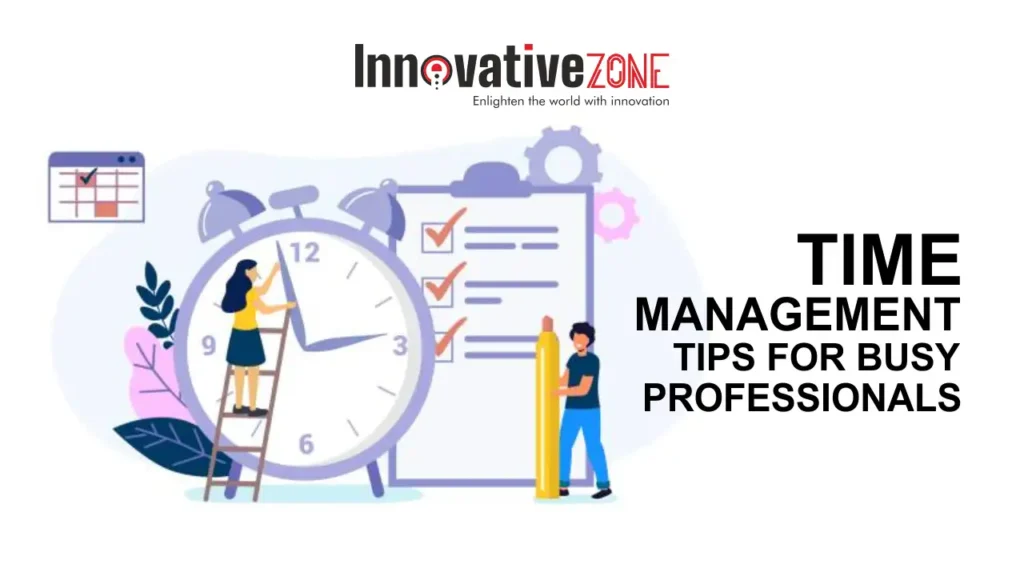Time management tips for busy professionals
Time management is an important aspect in the modern world, where all subsectors want their personnel to accomplish work within their work timelines. When individuals face many conflicts at the workplace, they tend to stress, and the performance rate reduces. Some effective time management strategies necessary in the management of time by working people has been discussed
01. Prioritize Tasks
One effective method for prioritizing tasks is to divide tasks into four categories: Following the matrix, there are four categories, these are urgent and important, important but not urgent, urgent but not important and finally, not important nor urgent. Essentials are important in the sense that they should be done and they are urgent in the sense that they have to be done within a certain time, therefore by prioritizing both, professionals work on tasks that are important and need to be done as soon as possible.
Things that lie in the ‘important but not urgent’ category can therefore be planned for a later time and ‘urgent but not important’ something can usually be handed to someone else. Action should be taken such that insignificant activities at work, which are either reduced to or avoided entirely.
02. Embrace Time Blocking
In time blocking approach, one gets to allocate particular segments of time for certain activities in a day. While using the list of work, professionals go through their schedules performing tasks sequentially, they can block time for such activities as meetings, project-related work, and rest periods. This method helps to do one thing at a time and avoids multitasking. To enhance the efficiency, use a calendar or planner in the digital format.
03. Set SMART Goals
Goals when well spelt out and aligned with the SMART (Specific, Measurable, Achievable, Relevant and Time-bound) framework offer directions.By setting concrete goals, professionals are able to work towards them with a precise sense of progression. These goals can be reviewed periodically to modify with time .
04. Limit Distractions and Interruptions
Interferences and distractions are some of the factors that working people will always face on a daily basis. All these factors must be avoided or reduced as much as possible. With all of these disruptive elements it could include avoiding interaction with peers during the day, turning off notifications which are not absolutely necessary, or even having a separate area which is reserved solely for work purposes. It is also possible to restore concentration and increase productivity by having a short break after a interval of work .
05. Delegate Effectively
Delegation is one of the most important skills in the effective time management. Delegation can be defined as assigning a task to another individual or group of individuals with clearly conveyed expectations, required support as well as the confidence in the workforce. Organizations can then assign work more effectively.
06. Technology as a advantage
There are numerous applications and software that can be found in the sphere of technologies to help to time management. Applications such as Asana or Trello can be used for managing the tasks, setting the deadlines, and involving the members of the team. Applications such as Toggle can help identify how the many minutes in a day are being employed hence optimize for better utilization. Using of these tools is becomes easier for the professional to manage their time and organize their work.
07. Implement the Two-Minute Rule
Two-minute rule: taken from David Allen’s – if something can be done in two minutes, then it should be done at that point. This tries to ensure that the smaller tasks are sorted out in a short period so that they do not pile up and become a burden. In this way, all such small tasks are being completed .
08. Exercise and Healthy Diet
Fasting regularly or eating healthy increases the amount of energy in one’s body and removes stress in the body. Experts have suggested people should take short intervals in a day to rest the brain. It is also possible to apply breaks between work with the help of such a tool as the 52/17 rule. Besides, breaks help to improve concentrations and well being.
09. Review and Reflect
At the end of each week, the professionals should discuss their progress and the set goals, together with any shortcomings. This practice helps people to get an effective idea to modify their strategies and time management skills. It will also be useful to enhance productivity and achieve goals on time.
10. To maintain a work-life balance
Lastly, it is vital to have a healthy work-life balance and be happy in order to work. The Working professionals should have boundaries between their work and their home life, career should require the time for leisure, and nobody should work too much. Combining work with other activities is the significant way to avoid the process of exhaustion to satisfying high performance.
Thus, the efficient use of time will embrace productivity in the working professional activity with the aim of achieving personal aims and objectives. By prioritizing tasks, using time blocking, aim setting as well as the SMART approach, reducing distractions, delegation, using technology, two-minute rule, breaks, reviewing progress and work life balance, they can be able to manage their responsibilities much easier and be much happier.
Add Innovative Zone magazine to your Google News feed
Read Also:
- Unveiling the Mukesh Ambani’s Success Story
- Top FMCG Companies in India: Leading Brands Driving Consumer Markets
- iGo Wise Mobility Pvt. Ltd.
- Rakhi 2024: Top gifts for brothers under 1500 to brighten their day
- Gurmeet Likhari and its group Brahma Tank
- Top 10 Least Visited Countries in the World Till August 2024


